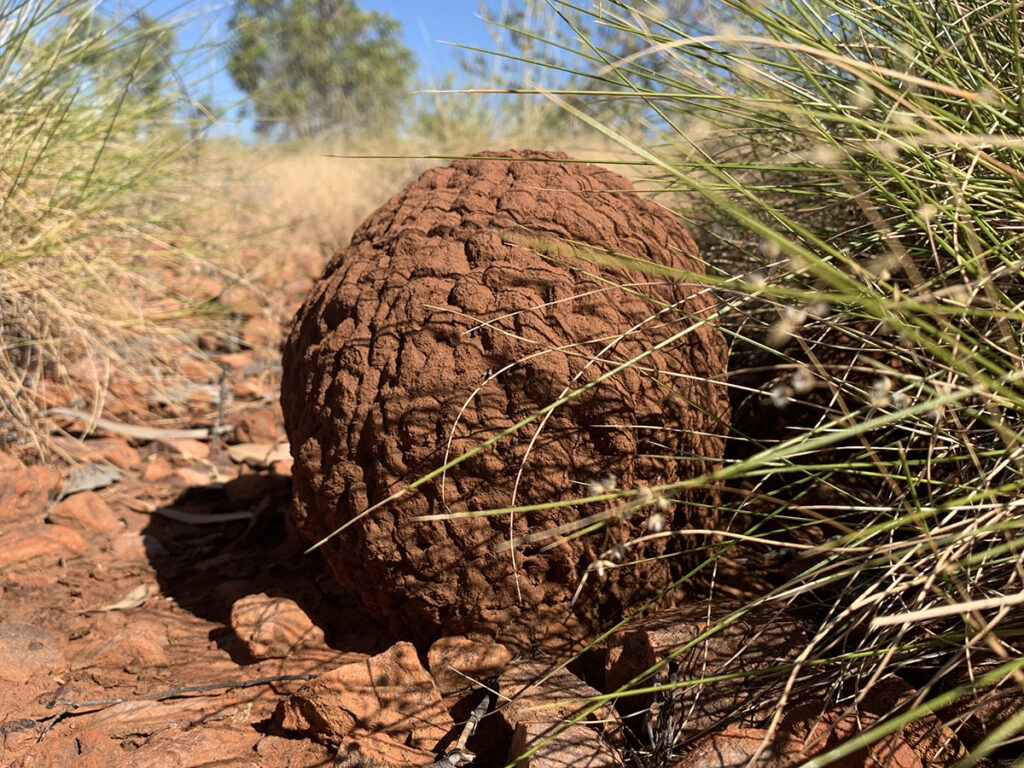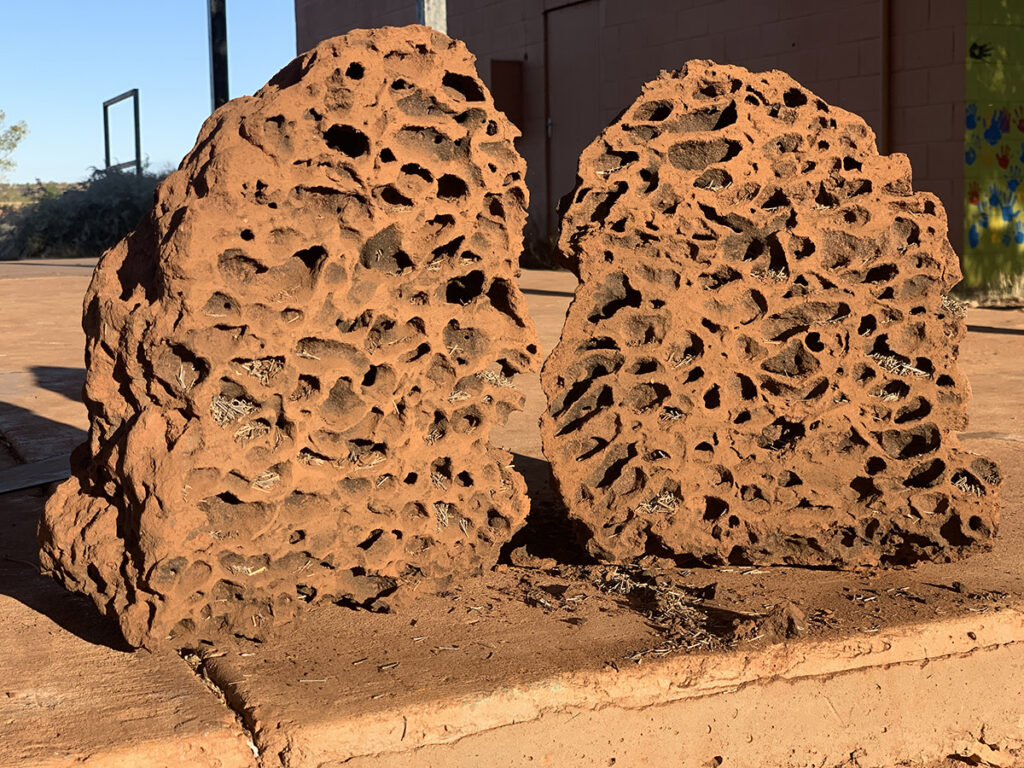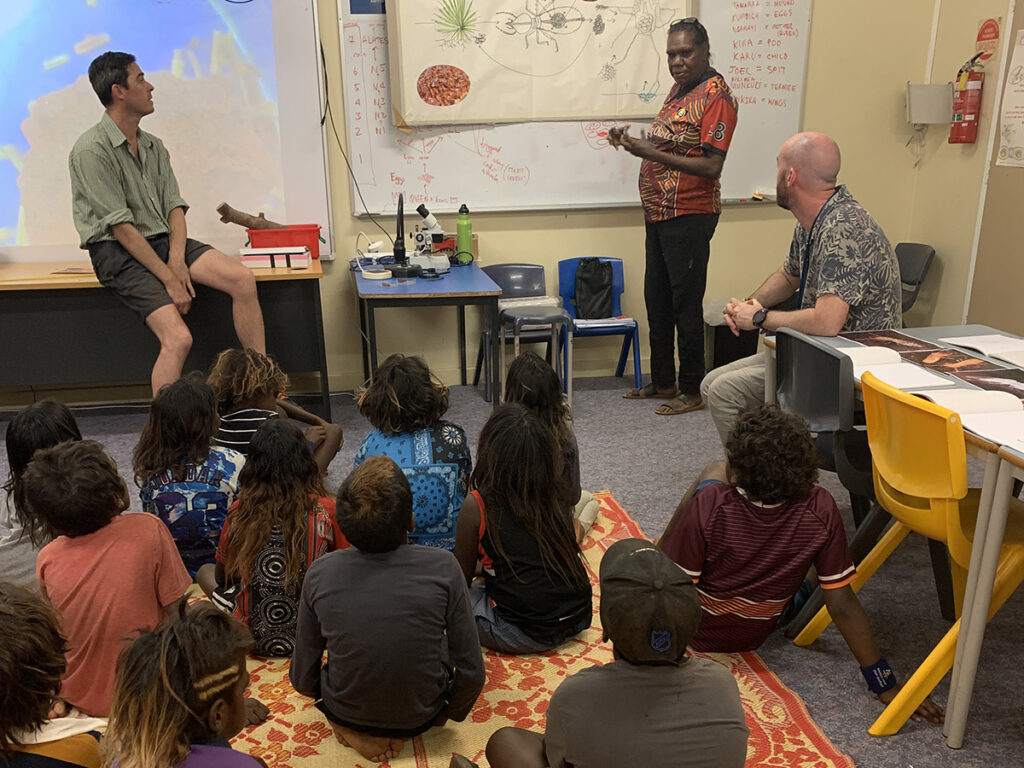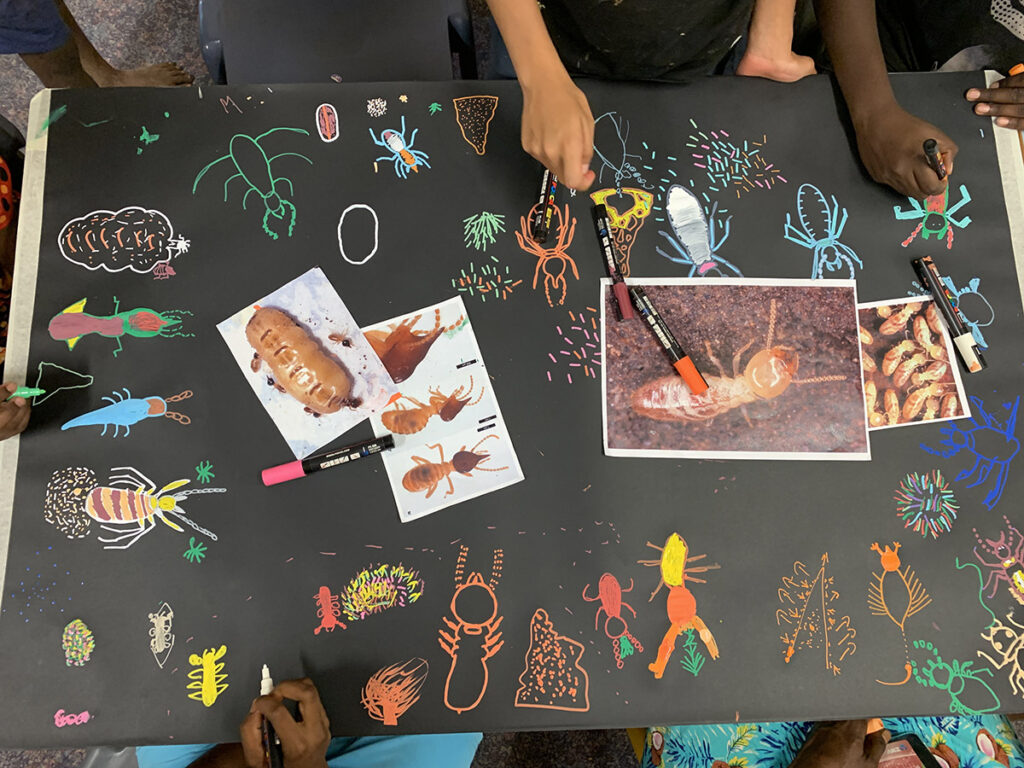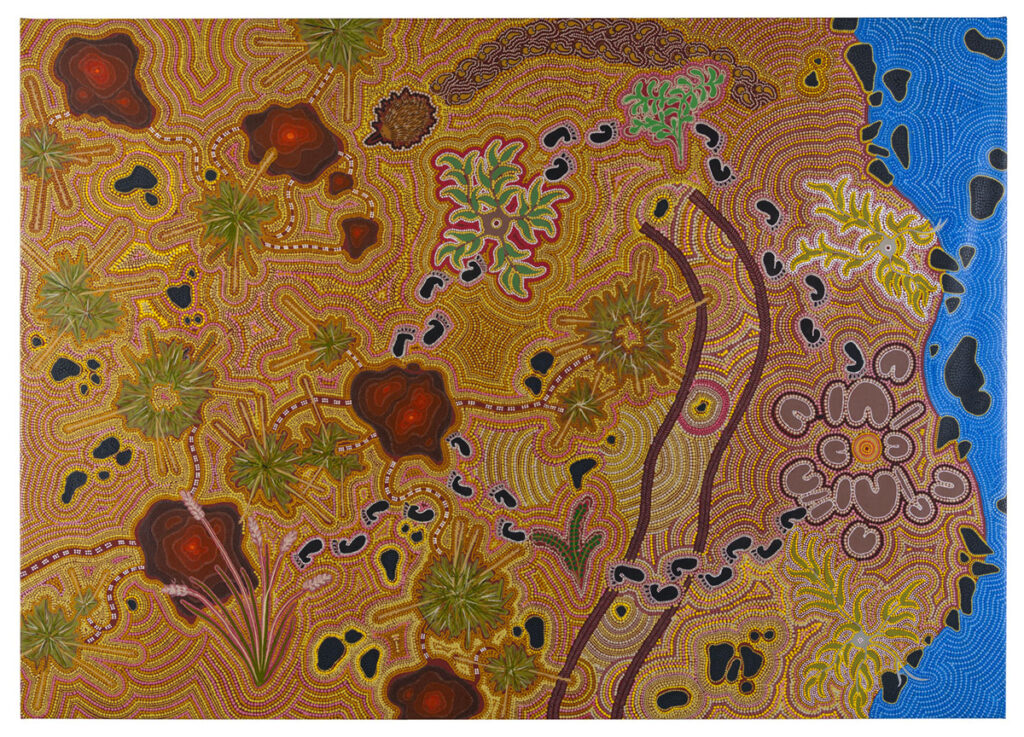Scale Free Network is honoured to have spent nearly four months working with and learning from Gurindji elders, artists, knowledge keepers, rangers, language workers and students as part of a new termite-inspired project. During our time on Gurindji Country (between May – Oct 2021), we have been based between Karungkarni Art & Culture Centre and Kalkaringi School.
Tamarra: Gurindji Termite Project brings together intercultural and interdisciplinary perspectives of termites through art-making, story-telling, field research, microbiology, ecology, cultural practice, bush medicine, educational workshops, language and dialogue.
As part of this ongoing project, Scale Free Network have been collaborating on the research and creative development of a children’s picture book about spinifex termites (called munkurt in Gurindji) who build mounds (called tamarra) across much of the grasslands of central Australia. Keeping in theme with our Small Friends Books series, this picture book will also feature some of the amazing bacteria found in the gut of these important-but-overlooked creatures!
We’re lucky to be working closely with amazing collaborators, including: artists and cultural custodians Violet Wadrill, Topsy Dodd and Leah Leaman, artists Lucy Tanami, Rosemary Johnson and Cecelia Edwards, language worker Cassandra Algy, Karungkarni Art managers Penny Smith and Jacqui Young, and Prof. Felicity Meakins from the School of Languages and Culture at the University of QLD.
The Gurindji people are based in remote Northern Territory, and are most famous for leading the Wavehill Walkoff in 1966, the start of Australia’s Land Rights movement…which Paul Kelly and Kev Carmody summed up beautifully in their iconic song, From Little Things, Big Things Grow.
If you’re keen to learn more about this important piece of Australian history, the film The Unlucky Australians is available to watch on YouTube.
Scale Free Network’s participation in this project is supported by the Australia Council for the Arts. More broadly, the Tamarra project has been supported with funding from the Aboriginals Benefit Account, the Indigenous Languages and Arts program and the ARC Centre for Excellence for the Dynamics of Language.
Special thank you to Erika Charola and Brenton Hobart who hosted Scale Free Network in Kalkaringi, and a shout out for Karu: Growing Up Gurindji (Spinifex Press) – the publication that led us to being part of this project.

